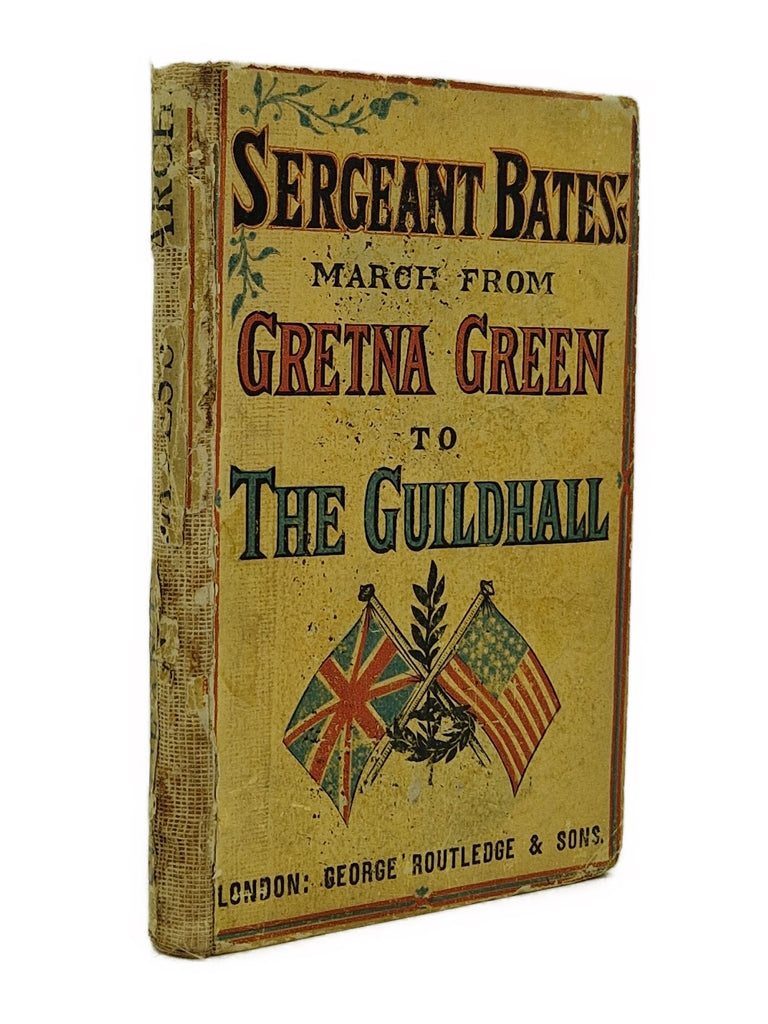Sergeant Bates's March from Gretna Green to the Guildhall
BATES, Gilbert H.



London: George Routledge and Sons. 1873.
First edition. 8vo. 160x100mm. pp. [2 adverts], viii, 184, [2, adverts]. Pastedowns are publisher's adverts. Original illustrated paper covered board with an image of the Union Flag and the Stars and Stripes. Edges and corners worn, paper on spine is torn with loss. Hinges cracked but holding and would benefit from a little repair. Rare, JISC Library Hub locating four copies in UK institutions (BL, NLS, Oxford and Cambridge) with Worldcat adding two more (NYPL and Australian National University) and no copies in the auction records. Front pastedown has ownership inscription of Edgar Robinson who makes an appearance in the book when on 11th November 1872, Bates writes that "after visiting several places of interest in the neighbourhood of Kendal, I dined at Aynham Lodge, the beautiful mansion of Mr Edgar Robinson". No doubt Bates sent Robinson this copy to let him know how he'd got on after their dinner together.
In November 1867, two and a half years after the end of the American Civil War in which he had fought, Gilbert Bates was told that "No man dare show the Union flag anywhere in the South except in the presence of our soldiers." In an attempt to prove this wrong, Bates decided to walk from Mississippi to Washington carrying the Stars and Stripes. Despite the cynicism of (among others) Mark Twain, Bates's 1400 mile walk was a triumph and he published a short pamphlet about it.
In 1872, a friend bet him that he could not repeat the feat in England, which had, the friend thought, supported the Confederacy (in fact, Britain was officially neutral and kept well out of the Civil War). Beginning in the Scottish borders on 5th November 1872, he had arrived in London (400 miles away) by the end of the month. Walking the whole way in military uniform and with an unfurled American flag, he had become something of a celebrity. He was greeted by huge crowds in the capital where he was escorted to the Guildhall and hung his Stars and Stripes alongside the Union Jack. He gave a speech to the crowds which included these heart-warming words: "I did not cross the Atlantic for a test, but to prove that I was right when I said the English people respected America". Indeed. And, what's more, he refused to enforce the bet which he had won. All in all a pretty decent chap.
